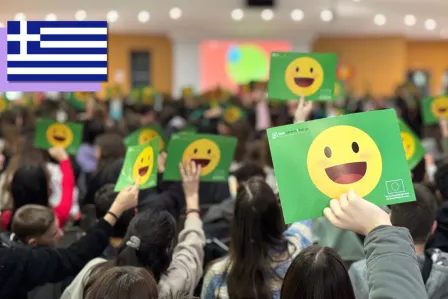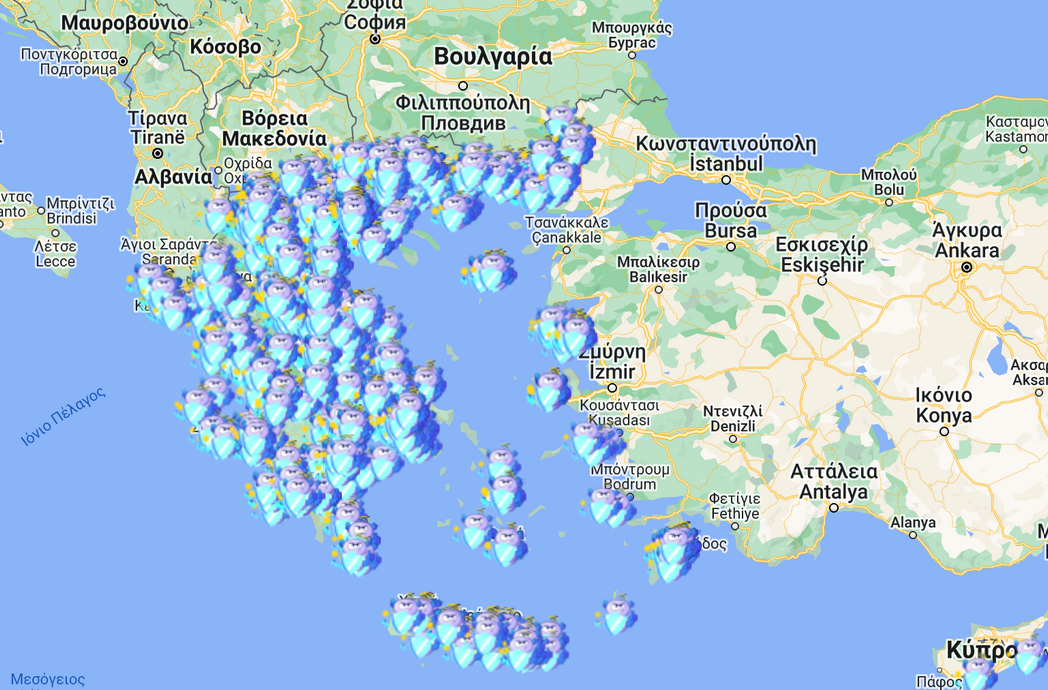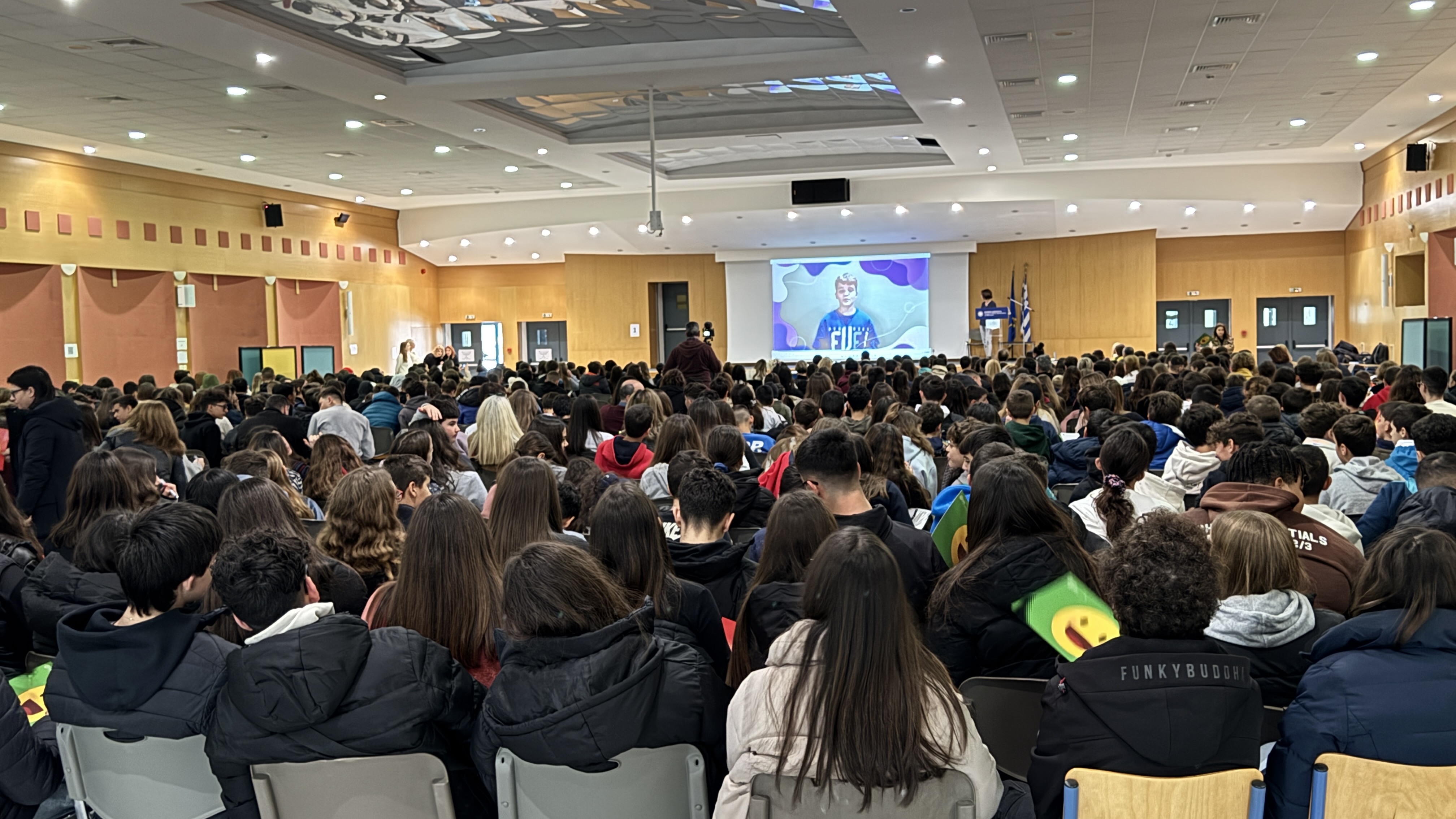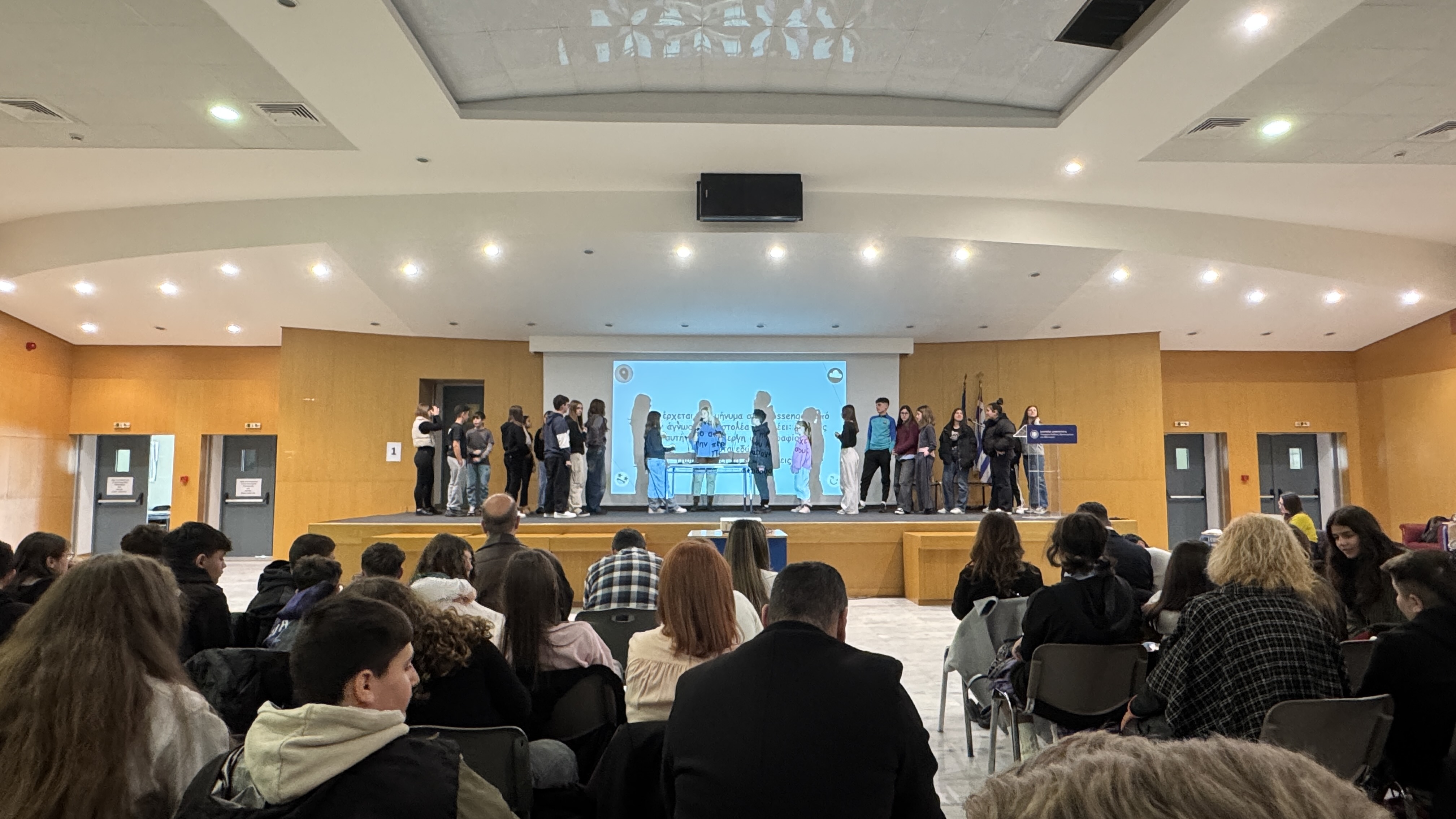For the 22nd consecutive year, the Greek Safer Internet Centre of FORTH organised a series of activities that brought together the school community and stakeholders from all parts of Greece.

The Safer Internet Day 2025 in Greece was a celebration that spread across every corner of the country. For the 22nd consecutive year, the Greek Safer Internet Centre of FORTH organised a series of activities that brought together the school community and stakeholders from all parts of Greece, including the Greek communities abroad. Through this initiative, digital education and internet safety were strengthened, as the message of responsibility and protection from online dangers reached everywhere. From the heart of Athens to Thessaloniki, from the Aegean islands to the remote mountainous regions, the flame of the campaign spread in every corner of the country, proving that internet safety is everyone’s responsibility and the future of the digital world is in our hands.
Map of SID supporters
The central event of the celebration took place in Athens at the Ministry of education, religious affairs, and sports, where 30 schools and over 700 students and teachers participated. Deputy Minister of education, Zeta Makri, greeted the event and emphasised that the future of digital safety lies in the collaboration of all stakeholders, from education and parents to organisations working for the protection of children.

One of the most important moments of the event was the participation of two beloved actresses, Vaso Laskaraki and Vassia Golfiopoulou, who conversed with the students and gave valuable advice on the positive and safe use of the internet. The conversation was filled with practical tips, and the actresses shared their personal experiences and the need for responsibility in their online activities.
At the same time, former MEP Maria Spiraki, in her role as the mother of two teenagers, offered a different perspective to the discussion, speaking about the importance of critical thinking and family dialogue so that young people can face online challenges with confidence and maturity.

Experts from the National Cybersecurity Authority provided students with valuable knowledge on protecting themselves and career prospects in the field of cybersecurity, highlighting how important it is to educate people on the use of technology to protect personal data.
The attending students did not only listen to experts talking about safe internet use but also engaged in playful activities during the event, raising awareness on safe and quality internet use.

Alongside the central event, hundreds of schools across Greece responded to the call of the Greek Safer Internet Centre and held their own celebration at their schools, sending a loud message for a safe and high-quality internet! Throughout the week, updates continued in schools through online seminars scheduled for all educational levels in an effort to ensure the message of the day and the key tips reached all children, even those studying in remote areas of the country. Over 1,500 students participated in the online seminars, including students from Greek communities abroad, such as schools in Brussels, Dortmund, Alexandria, and even Congo!

Notably, the competitions organised by the Greek Safer Internet Centre over the past period, in which more than 800 schools participated, have now become an institution, showing the ongoing need for raising awareness about safe internet use.
Additionally, the new educational material created for Safer Internet Day was immediately embraced by educators. This new material focuses on group chats, helping children learn how to manage them safely and responsibly. For high school students, the new educational content aims to strengthen critical thinking. Students are taught how to assess the reliability of information, news, and people they encounter online.

For parents, two videos were created explaining step-by-step how to activate Family Link on their devices and their child’s device. Additionally, an infographic provides basic advice on how the internet can become a safe and creative space for children, while the material also includes a toolkit for age verification, explaining in simple terms what age verification means online and how it affects children’s protection, privacy, and rights. The material also includes two comprehensive guides for stakeholders, with an emphasis on the importance of digital literacy and legislation protecting against child sexual abuse material (CSAM).
You can see the new material here.
Safer Internet Day is a reminder of the importance of safety in the digital world, but the message is clear: every day should be Safer Internet Day. All of us, from students and parents to teachers and professionals, have the power and responsibility to ensure that the internet remains a safe, creative, and responsible space for future generations.
Let’s make internet safety part of our daily lives and let’s all work together for a better and safer digital future!
Find more information about the work of the Greek Safer Internet Centre, including its awareness raising, helpline, hotline, and youth participation services, or find similar information for other Safer Internet Centres throughout Europe.
For the 22nd consecutive year, the Greek Safer Internet Centre of FORTH organised a series of activities that brought together the school community and stakeholders from all parts of Greece.

The Safer Internet Day 2025 in Greece was a celebration that spread across every corner of the country. For the 22nd consecutive year, the Greek Safer Internet Centre of FORTH organised a series of activities that brought together the school community and stakeholders from all parts of Greece, including the Greek communities abroad. Through this initiative, digital education and internet safety were strengthened, as the message of responsibility and protection from online dangers reached everywhere. From the heart of Athens to Thessaloniki, from the Aegean islands to the remote mountainous regions, the flame of the campaign spread in every corner of the country, proving that internet safety is everyone’s responsibility and the future of the digital world is in our hands.
Map of SID supporters
The central event of the celebration took place in Athens at the Ministry of education, religious affairs, and sports, where 30 schools and over 700 students and teachers participated. Deputy Minister of education, Zeta Makri, greeted the event and emphasised that the future of digital safety lies in the collaboration of all stakeholders, from education and parents to organisations working for the protection of children.

One of the most important moments of the event was the participation of two beloved actresses, Vaso Laskaraki and Vassia Golfiopoulou, who conversed with the students and gave valuable advice on the positive and safe use of the internet. The conversation was filled with practical tips, and the actresses shared their personal experiences and the need for responsibility in their online activities.
At the same time, former MEP Maria Spiraki, in her role as the mother of two teenagers, offered a different perspective to the discussion, speaking about the importance of critical thinking and family dialogue so that young people can face online challenges with confidence and maturity.

Experts from the National Cybersecurity Authority provided students with valuable knowledge on protecting themselves and career prospects in the field of cybersecurity, highlighting how important it is to educate people on the use of technology to protect personal data.
The attending students did not only listen to experts talking about safe internet use but also engaged in playful activities during the event, raising awareness on safe and quality internet use.

Alongside the central event, hundreds of schools across Greece responded to the call of the Greek Safer Internet Centre and held their own celebration at their schools, sending a loud message for a safe and high-quality internet! Throughout the week, updates continued in schools through online seminars scheduled for all educational levels in an effort to ensure the message of the day and the key tips reached all children, even those studying in remote areas of the country. Over 1,500 students participated in the online seminars, including students from Greek communities abroad, such as schools in Brussels, Dortmund, Alexandria, and even Congo!

Notably, the competitions organised by the Greek Safer Internet Centre over the past period, in which more than 800 schools participated, have now become an institution, showing the ongoing need for raising awareness about safe internet use.
Additionally, the new educational material created for Safer Internet Day was immediately embraced by educators. This new material focuses on group chats, helping children learn how to manage them safely and responsibly. For high school students, the new educational content aims to strengthen critical thinking. Students are taught how to assess the reliability of information, news, and people they encounter online.

For parents, two videos were created explaining step-by-step how to activate Family Link on their devices and their child’s device. Additionally, an infographic provides basic advice on how the internet can become a safe and creative space for children, while the material also includes a toolkit for age verification, explaining in simple terms what age verification means online and how it affects children’s protection, privacy, and rights. The material also includes two comprehensive guides for stakeholders, with an emphasis on the importance of digital literacy and legislation protecting against child sexual abuse material (CSAM).
You can see the new material here.
Safer Internet Day is a reminder of the importance of safety in the digital world, but the message is clear: every day should be Safer Internet Day. All of us, from students and parents to teachers and professionals, have the power and responsibility to ensure that the internet remains a safe, creative, and responsible space for future generations.
Let’s make internet safety part of our daily lives and let’s all work together for a better and safer digital future!
Find more information about the work of the Greek Safer Internet Centre, including its awareness raising, helpline, hotline, and youth participation services, or find similar information for other Safer Internet Centres throughout Europe.
- education media literacy online safety Safer Internet Day (SID)
Related content
- < Previous article
- Next article >












